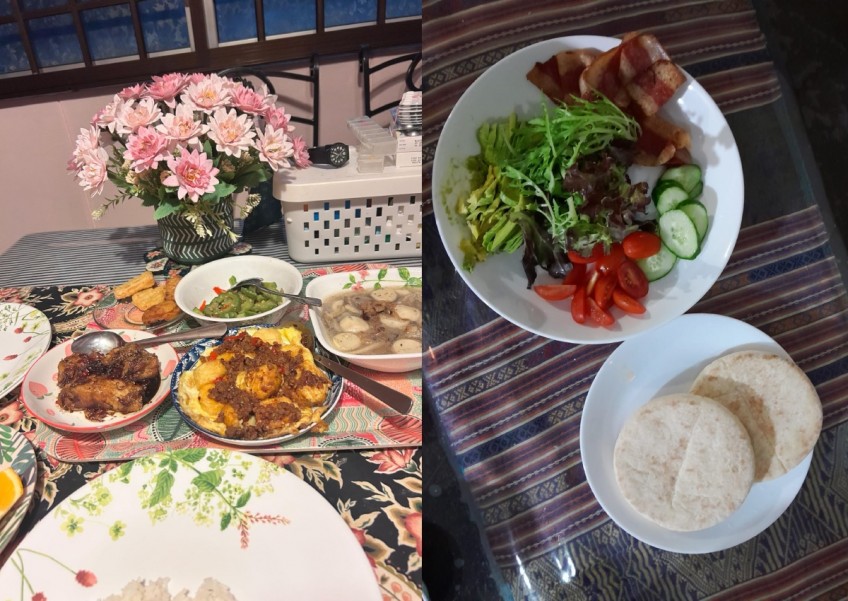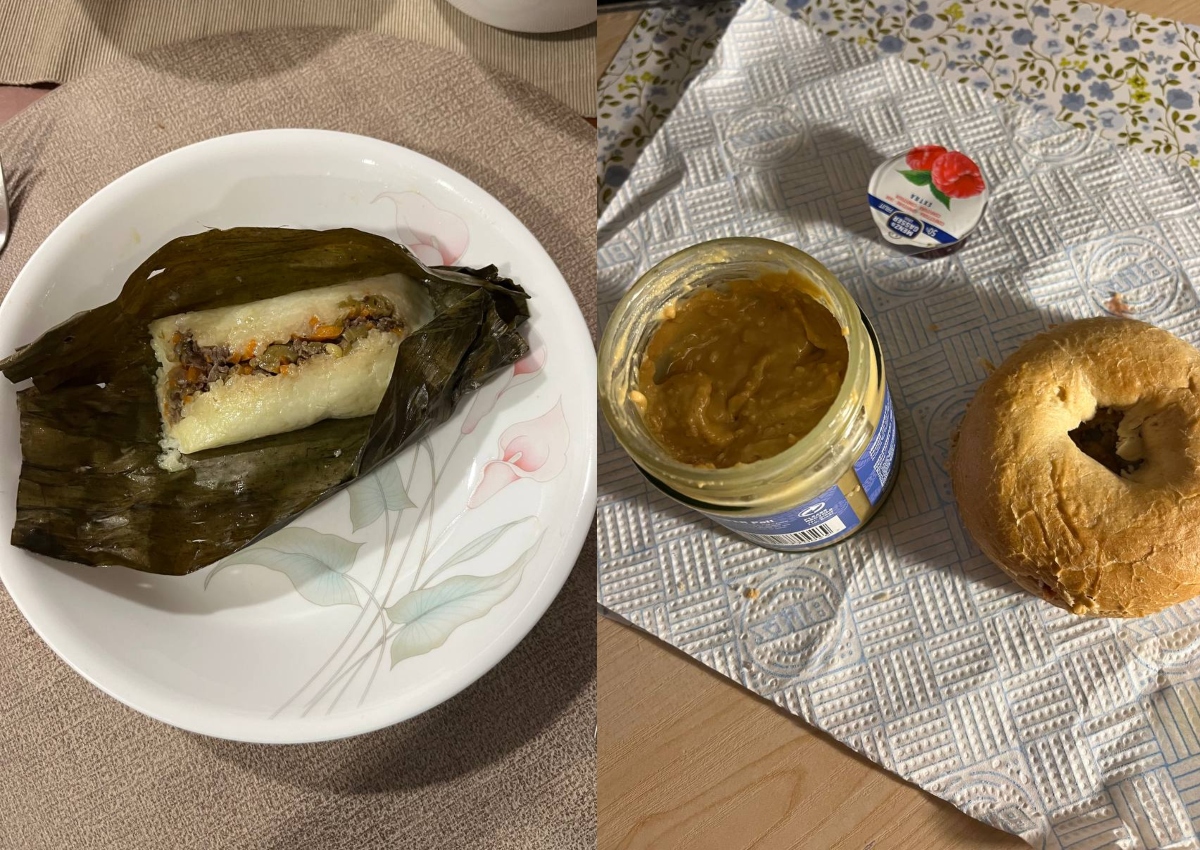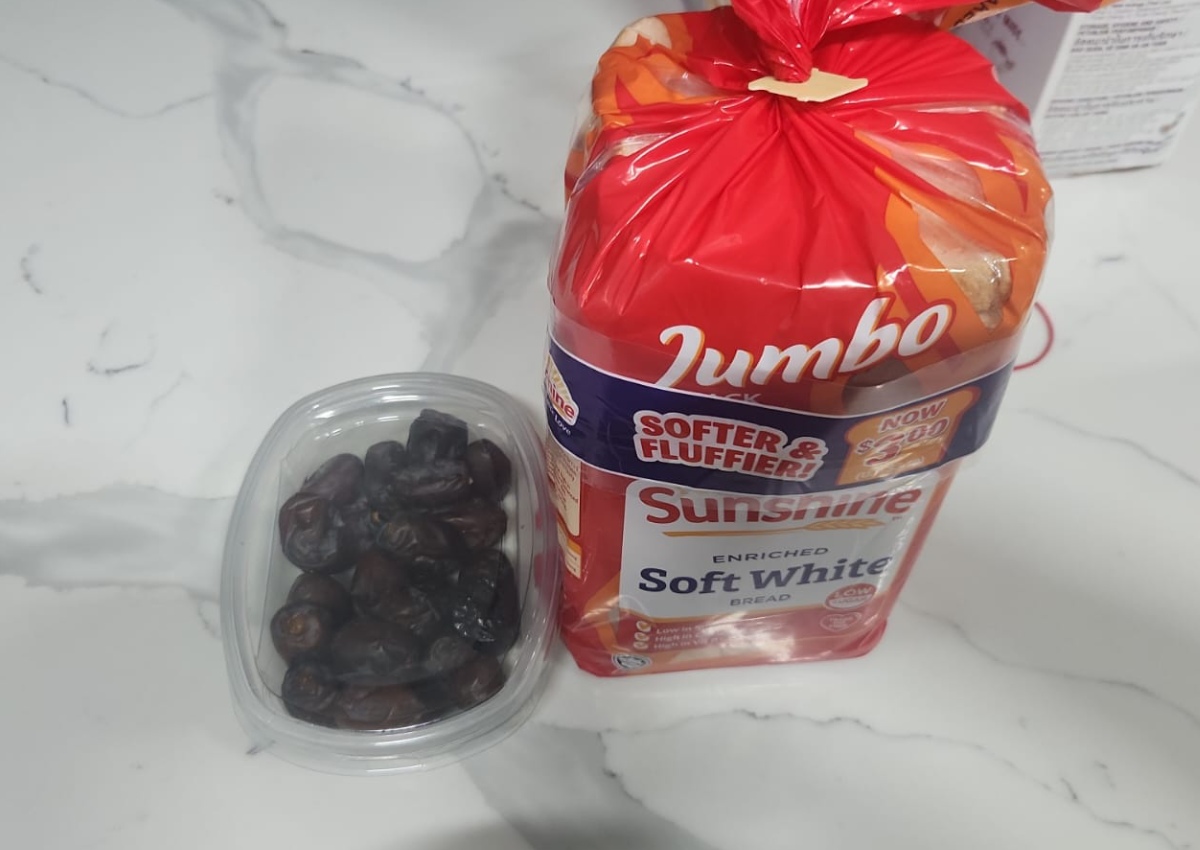From a full meal to a simple glass of water: Snippets of sahur from different Muslim families in Singapore


 PUBLISHED ONApril 03, 2024 7:45 AMByAmierul Rashid
PUBLISHED ONApril 03, 2024 7:45 AMByAmierul RashidDuring the holy month of Ramadan, Muslims around the world would wake up in the early hours of the morning for a pre-dawn meal known as sahur.
Due to its timing, sahur, more often than not, is an intimate event held within the household.
While this description could also fit an iftar, the fast-breaking evening meal, many Muslims can attest to the fact that sahur is a much quieter and solemn affair.
Iftar is different, as Muslims have the option of going out for meals together.
Also, it's quite common to come across photos of their iftar on social media but much less so of their sahur.
This had me wondering: What do Muslims in Singapore eat for sahur? Or what types of food do they prefer? Do they differ from one family to another?
So I asked a few Muslim friends from different walks of life to snap a photo of their sahur on one random Ramadan morning, and here's what I learned.

Yasmeen Azahari, 25, shared that her perfect sahur needed to be "something sweet and grainy", like cereal with milk or granola.
Her sister, Zahra Azahari, felt the same too.
"Something fast but filling, like overnight oats," the 20-year-old student said.
Currently studying abroad, Zahra opted for a simple peanut putter jelly bagel for her sahur that morning.
Her sister, based in Singapore, tucked into something more savoury instead, in the form of arem-arem.
This Indonesian dish is a savoury rice cake filled with vegetables and minced meat, wrapped in a banana leaf.
Yasmeen explained: "It's usually a snack but my family makes it big enough for it to fit the whole plate."
While their choice of food may differ, the importance of water at the dining table cannot be understated.
Zahra stressed: "If I could only have one thing [for sahur], it needs to be water."

In Samsiah Sidek's home, sahur would almost always have to be savoury.
In the photo she provided, the dining table that morning was filled with a plate of rice and an array of side dishes including bitter gourd, fish ball soup, fish and tofu.
According to the 63-year-old housewife, this is what a typical sahur would look like in her household.
When asked about must-haves during a pre-dawn meal, Samsiah replied: "No such thing [as a must-have]. As long as they have some food on the table, it's good enough already."
Interestingly though, she did mention how rice was "wajib" (translates to mandatory) for her family's sahur, which was something none of the other individuals I spoke to noted.
Hamidah Mohamed, 55, may have may have grown up eating rice with dishes for sahur but that eating habit has since changed.
The housewife now sees sahur as something akin to breakfast, with eggs or bread playing a more central role in her pre-dawn meal.
Also, Hamidah revealed that she must have some dates in order to "feel full" while fasting.
On this particular day, she opted to have a pita sandwich for her pre-dawn meal, accompanied with some turkey bacon, avocado and vegetables.

Haziq Razak lasted a full day of fasting on just water, bread and dates.
Similar to Hamidah, the 17-year-old student understands that dates are "very good in providing energy".
And he had no qualms with simply adding a slice of bread to his simple sahur.
If you thought that wasn't impressive, Haziq did not wake up for sahur on a separate day and simply got on with his fasting as usual.
The young man noted that, more often than not, he wakes up in the wee hours of the morning to prepare his own meals.

Shazni Azmi, on the other hand, doesn't even eat food on the regular for sahur.
He simply chugs three cups of water and it's back to bed for the 33-year-old civil servant.
"I am usually not hungry in the early morning—no appetite, and [just drinking water] makes it easier to go back to sleep," Shazni explained.
On the odd morning when he does feel hungry, a plate of scrambled eggs would work perfectly.
Growing up, sahur would usually be leftover meals from the previous night's dinner, but his sahur intake became smaller as the years passed.
"As I grew older, I started having lighter stuff like cereal or oatmeal. When I turned 30, I started having water only," he said.
Amongst everyone I spoke to, Haziq was the only male individual in the household to prepare his own meal for sahur.
Hamidah and Samsiah, mothers of their households, would wake up a tad earlier than the rest of the family in order to prepare the food.
Samsiah did mention that her domestic helper would be on hand to help "cook together".
Yasmeen and Zahra shared that their helper prepares the food in their home too.
Even in my own home, for the most part, it's my mum who sets her alarm clock earlier than the rest of us so that she can prepare our meal.
This got me thinking: If we aren't the ones preparing food for the family or for ourselves during sahur, for whatever reason, maybe it's a good time to ask—why is that so?
A discussion on the gendered nature of home cooking or food preparation can be had at a separate time, but this quick exercise should give us something to chew on.
amierul@asiaone.com
No part of this story or photos can be reproduced without permission from AsiaOne.